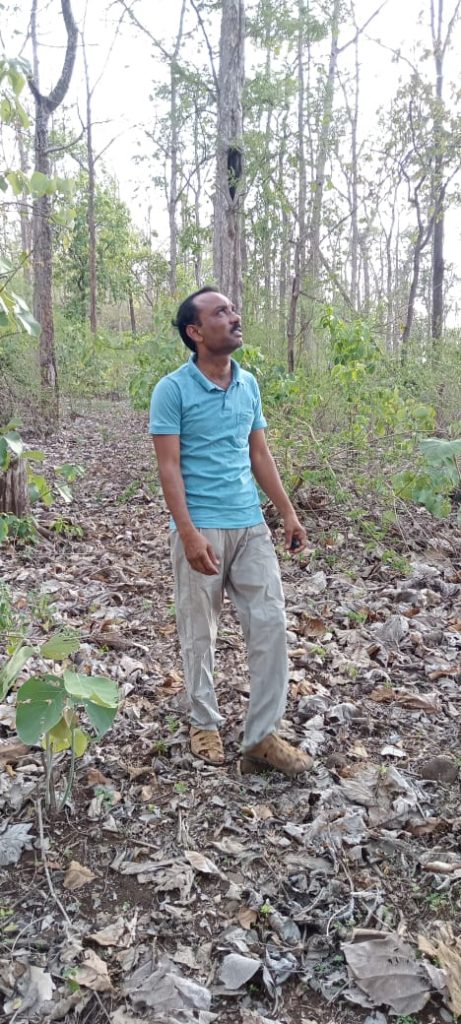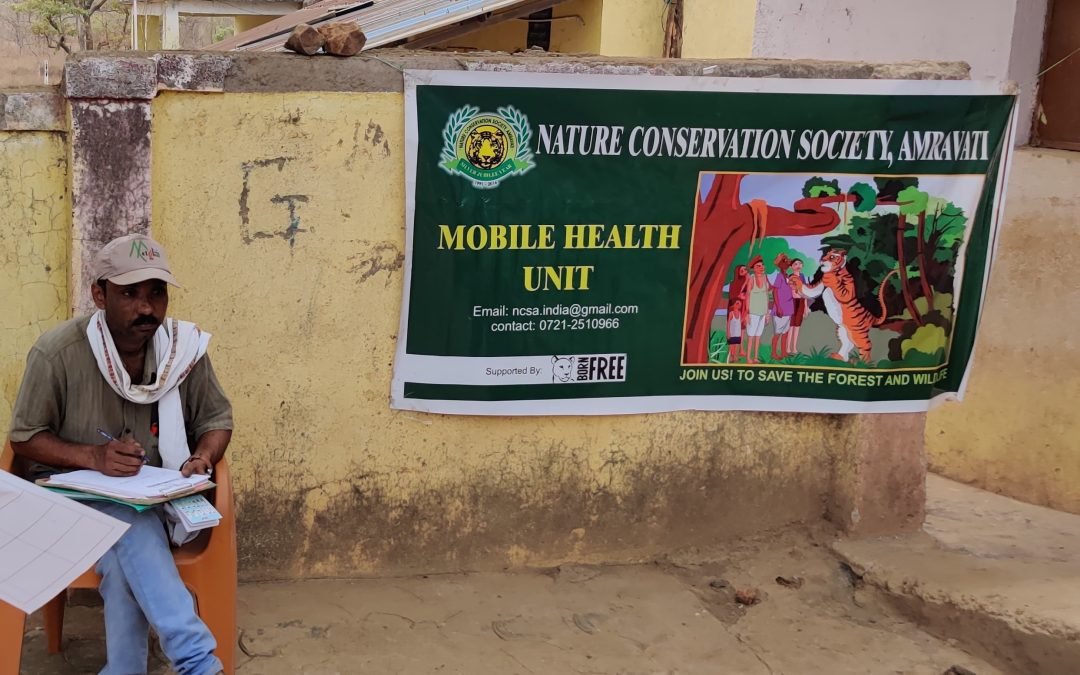Sachin Ingole from Nature Conservation Society of Amravati (NCSA) speaks to us about his work in Melghat Tiger Reserve in central India and how primary healthcare interventions are boosting conservation efforts in the region.
- Tell us more about yourself and what got you interested in working for the environment
I started my conservation journey with the BNHS team when the SLTP had just kick started. I worked with the team on the education programs for about 3-4 years. Then, as I wanted to be closer to my hometown Amravati, I joined the NCSA team to help run their Mobile Health Unit here in Melghat Tiger Reserve. In addition, I used to help the team deliver their Mobile Education programs too.
- How does a typical day unfold for you ?
Our Medical health camps delivered through our Mobile Health Units span around 3 days. These camps help the community living around tiger reserves access basic healthcare. During a typical day, I help in making various logistical arrangements like arranging medicines and managing their stocks, securing permissions from the forest department for the camps, and coordinating with the doctors among other tasks.
- What do you love about your current job ?
The thing I like the most is the support of the local community that we receive post the medical camps. I recollect this example from Raksha village where we had organized a medical camp. Incidentally, during the camp, there was a fire detected in the surrounding forest. The local community immediately agreed to help and all of us proceeded toward helping douse the fire.
I believe this was due to the trust that was built between us and them due to the medical camps that were organized.

Sachin during his field work in Melghat Tiger Reserve
- Could you share a key learning or experience from the field
Some of the experiences I cherish the most were the times we used to deliver educational programs through NCSAs mobile education van in Melghat. The van was lovingly called ‘Duda Gaadi’ i.e. ‘Owl Van’ by the project team and the locals and children used to run behind it excitedly whenever they used to see it. I was amazed to see their excitement and enthusiasm towards the awareness programs. We also organized some camps for the school children as part of which we encouraged them to volunteer for conservation activities and told them about their importance too.
- Do you feel optimistic about the future of the natural environment of India/ Have you experienced a positive change regarding conservation in your area ?
Apart from the increased conservation support from local communities, I have personally also noticed a bit of positive change in urban areas. For example, when I interact with banking officials for admin related work, they too ask me about how they can undertake tree plantation and where they can procure saplings from. I believe that we will continue to see this positive change.

